Festivals - FCAD 2024 : In-Depth with Alonso Ruizpalacios on La Cocina
By Mulder, Deauville, Hôtel Barrière Le Royal , 14 september 2024
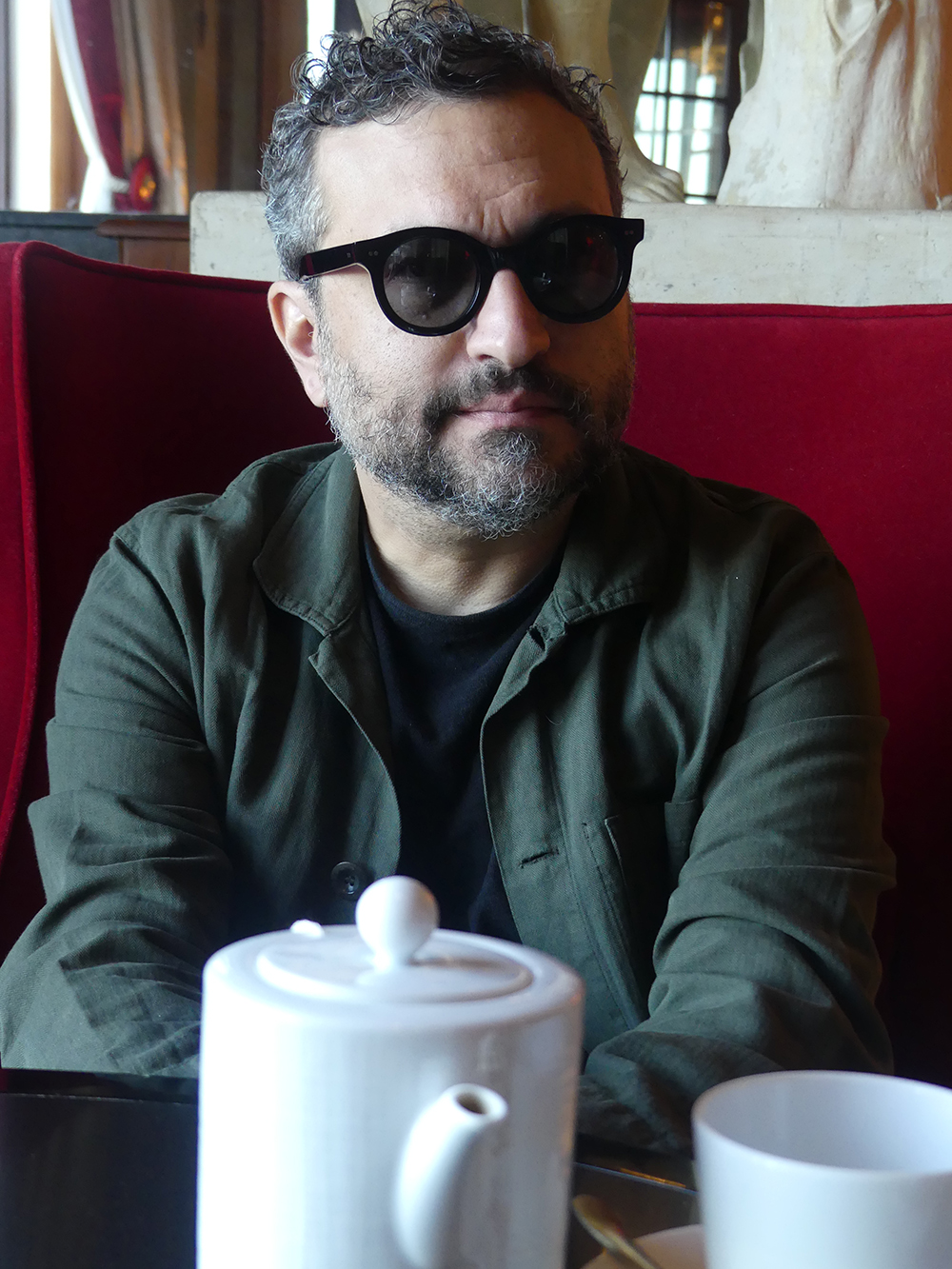
The 50th Deauville American Film Festival featured La Cocina, a film by acclaimed Mexican director Alonso Ruizpalacios, in its official competition. Known for his earlier works like Güeros and Museum, Alonso Ruizpalacios delivers a gripping social commentary with La Cocina, set in the high-pressure environment of a Manhattan restaurant kitchen. Adapted from Arnold Wesker’s 1957 play The Kitchen, the film centers on the lives of immigrant workers as they navigate the volatile dynamics of a busy New York eatery during rush hour, while reflecting on themes of identity, exploitation, and the American dream.
In La Cocina, Alonso Ruizpalacios uses the kitchen as a powerful metaphor for the broader immigrant experience, highlighting the challenges faced by those striving for a better life in America. With an impressive international cast and a blend of English and Spanish, the film offers sharp social insights, dark humor, and emotional depth. It captivated the Deauville audience, earning the prestigious 50th Anniversary Barrière Prize for its bold narrative and compelling portrayal of the working class.
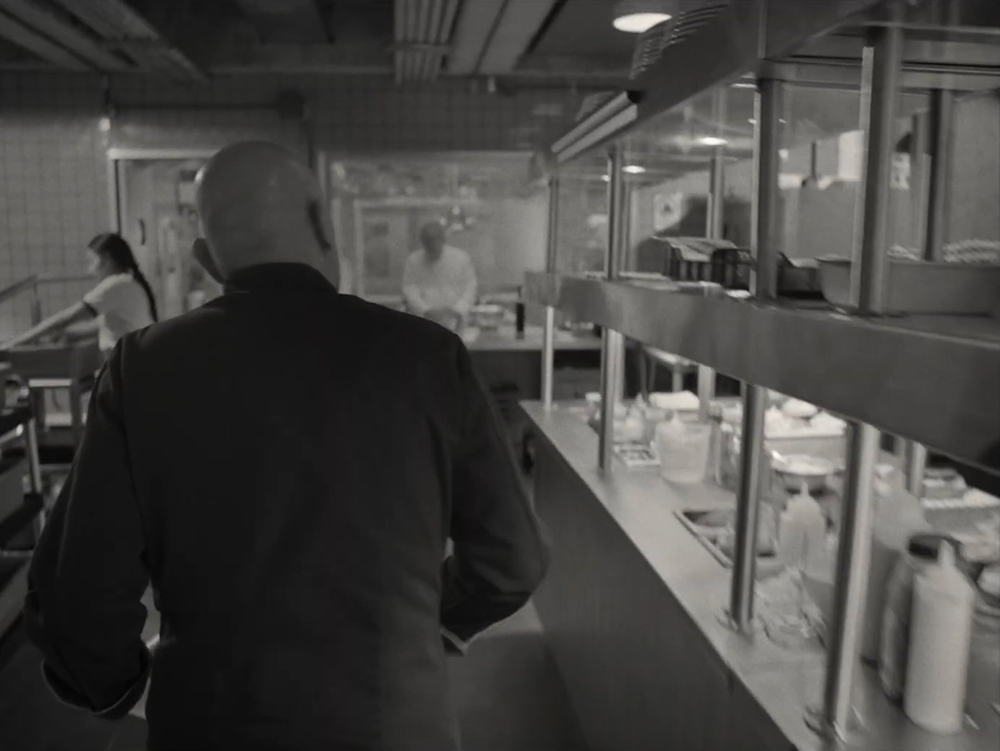
Q: La Cocina is based on Arnold Wesker’s 1957 play The Kitchen. What drew you to this particular play, and why did you feel it was the right material for a film adaptation in 2024 ?
Alonso Ruizpalacios: Well, I read that play when I was studying drama in London, and I was working after school in a restaurant kitchen to help pay for my studies. What I was reading in the play helped me make more sense of my working days there. The days in kitchen work are tough and very stressful, but seeing it through this light helped me understand and make sense of it.
Q: The film is set in Manhattan, yet principal photography took place in Mexico City. How did you manage to capture the essence of New York City in a different location ?
Alonso Ruizpalacios: That was a nice challenge. I mean, obviously, we shot the exteriors in New York. We shot for a week and a half there, and then the rest we shot in Mexico because we had more control. But the way we did it was, we made sure that we had the melting pot — the cast was key. We brought people from different parts of the world, and we rehearsed for three or four weeks before shooting. We did a lot of improvisation, and that helped everyone focus and believe in this environment we were creating, where English is the main language. We had to switch things around, and I think that created a very believable atmosphere.
Q: Shooting La Cocina in black and white gives the film a timeless, surreal quality. What was your motivation behind this visual choice, and how did you want it to impact the viewer’s experience ?
Alonso Ruizpalacios: I think it’s precisely that — I wanted the movie to feel timeless, so people couldn’t say, “Well, this is 2024 or 1980.” It’s somewhere in between because it's something that keeps happening. The play, which the film is based on, is from the 1950s, and it still feels relevant today. That was important. The other thing was I wanted to frame it like a fable, where it wasn’t realism, but something beyond realism, which was important for the film.
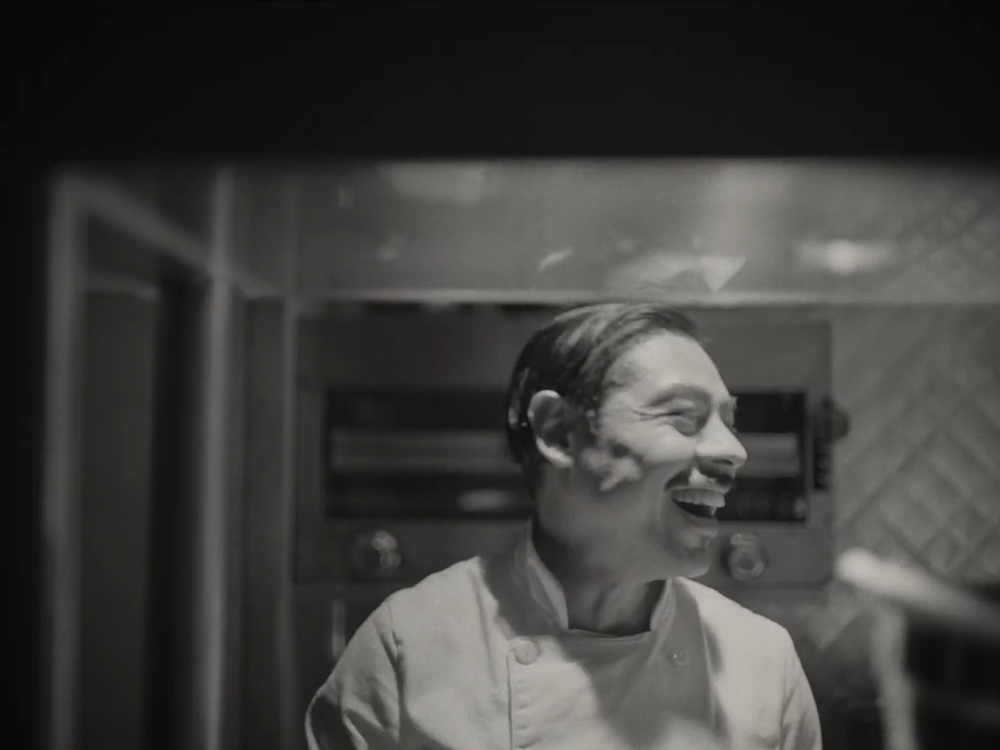
Q: The immigrant experience is a significant theme in La Cocina. Can you talk about how you approached portraying this struggle in the high-pressure environment of a restaurant kitchen ?
Alonso Ruizpalacios: Well, it was a two-part process. First, we had to create a working restaurant. We hired a chef who created a menu for us. Kitchens are built according to the menu — not the other way around. It’s not like you have a kitchen and then decide what food to make. First, you decide what food you’re going to serve, and according to that, the kitchen is designed. So, we hired a chef, decided on the menu, and designed the kitchen in that sense. Then we made it work, and the actors came in to learn for one month before shooting. They took cooking classes and each learned to make the dishes their character was making. Once we had a functioning kitchen, we figured out how to tell the story with a camera. So, it was a two-part process.
Q: The character Estela, a Mexican immigrant, is central to the film’s narrative. What inspired you to explore her journey, and how does she reflect the broader immigrant experience in America ?
Alonso Ruizpalacios: I think Estela is like our Virgil in The Divine Comedy. She’s our guide; she takes the audience inside the maze, which is the kitchen, because she’s the first-timer, the recently arrived. I needed fresh eyes to go into the kitchen, so that’s what she represents — fresh, virgin eyes that see everything with surprise, fascination, and fear at first. Once we go in, then we switch characters, and she becomes a secondary character.
Q: The restaurant kitchen is portrayed as a chaotic, almost battleground-like setting. What challenges did you face in creating such a dynamic environment, and how did you work with your cast and crew to maintain that energy ?
Alonso Ruizpalacios: Well, like I said, we did a period of rehearsals. We brought all the cast down to Mexico to rehearse for four weeks. We created relationships, and they learned how to cook. It was through the process of rehearsal that we tightened things up and made them faster and faster. It was a process of rehearsal.
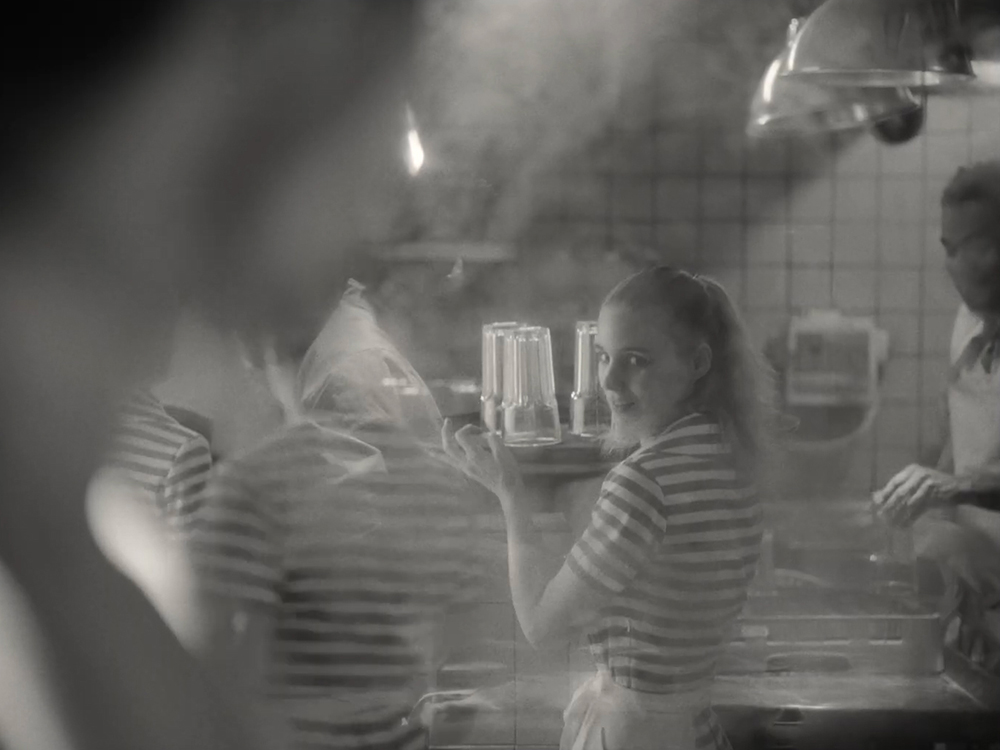
Q: Pedro, played by Raúl Briones, emerges as a key figure in the story. What drew you to his character, and what do you think his journey represents in the broader narrative of the film ?
Alonso Ruizpalacios: I think he represents the dreamer. He is the person who is not content with what life gives him. He wants more. There are two kinds of people — people who settle for what life gives them, and people who search and want more. I think he’s the second kind. He wants more.
Q: You’ve worked with a blend of Mexican and international actors, including Rooney Mara and Anna Diaz. How did you approach casting for such a diverse set of characters ?
Alonso Ruizpalacios: We had three casting directors — one in Mexico, one in the US, and one in Europe. I wanted unknown faces, except for Rooney Mara, of course. We needed someone who had that star quality because that’s how Pedro sees her. He sees her as something else. It made sense to have a Hollywood star for that role. Also, she’s a fantastic actress I wanted to work with.
Q: The film highlights issues such as exploitation, racism, and sexism within the restaurant industry. How did you balance addressing these social issues with the personal stories of the characters ?
Alonso Ruizpalacios: That took a lot of rewriting, trying to arrive at a balance between developing the characters and addressing the themes. I think it’s always through the characters. You have to avoid preaching or viewing things from the outside; let the themes spring out naturally from the characters.
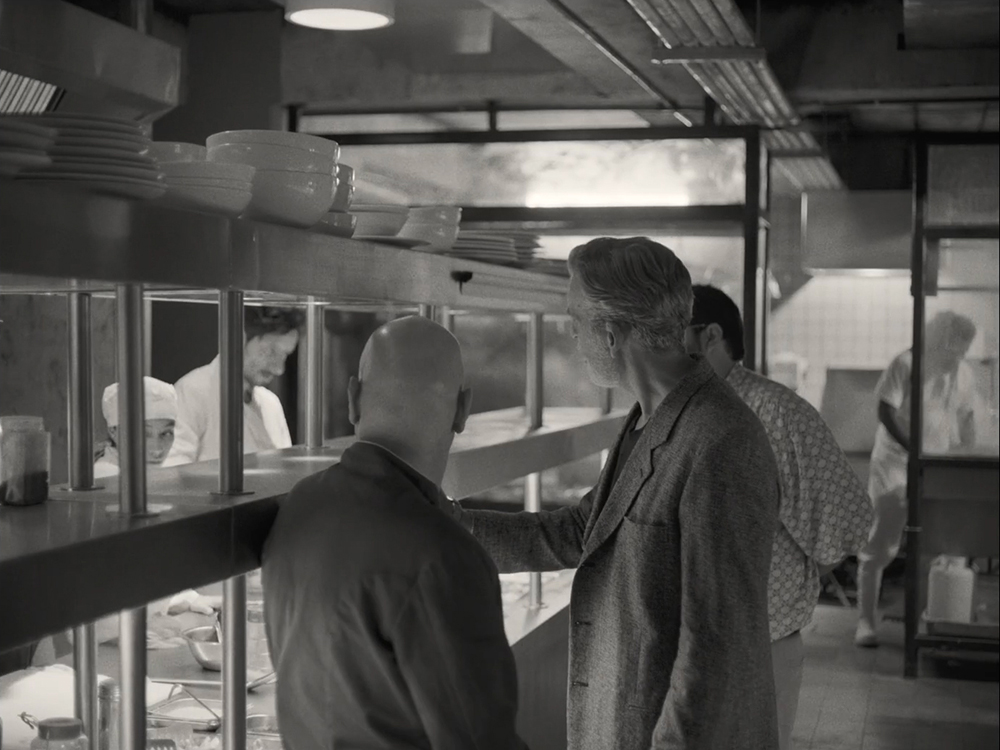
Q: Raúl Briones’ portrayal of Pedro is intense and complex. How did you and Raúl collaborate to bring such a volatile yet vulnerable character to life ?
Alonso Ruizpalacios: Raúl Briones is a fantastic and very disciplined actor. He didn’t know English before this film, so he learned English. He had a lot of scenes in English with Julia, and it was impressive to see him learn. It was a process of talking a lot and adjusting the character during rehearsals. Little by little, we found him, and we brought Raúl closer to the character I had in mind, meeting somewhere in between.
Q: La Cocina features moments of quiet introspection amidst the chaos. How important were these pauses in the narrative, and what did you hope the audience would take away from them?
Alonso Ruizpalacios: Counterpoint is important. If the film were all chaos, it wouldn’t work. I structured this film musically. There’s an allegro, an adagio, and then the resolution. These moments of quiet are important because they help the audience understand what has happened before. They provide a pause to settle into a different mood before you go into the final climax.
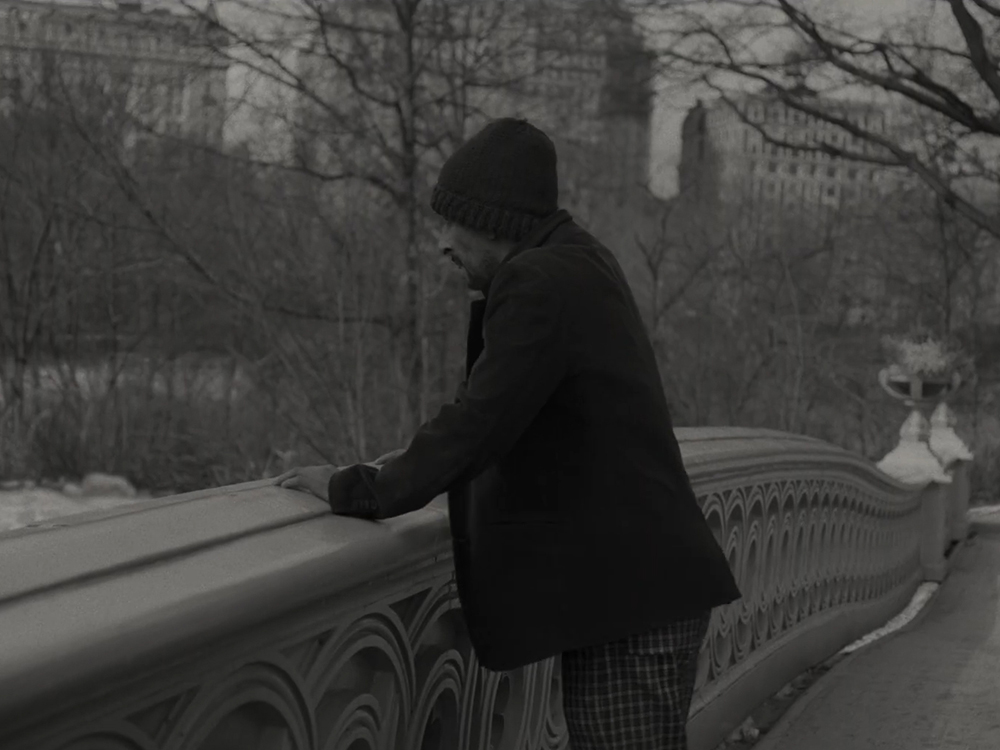
Q: The relationship between Pedro and Julia, played by Rooney Mara, is fraught with tension, especially around Julia’s pregnancy. How did you develop this subplot, and what does it add to the overall story ?
Alonso Ruizpalacios: I’ve always wanted to include a love story in my movies. It’s something I hadn’t really explored before. I wanted a love story that was flawed, one doomed to fail. I think their relationship adds another dimension to the movie because it gives hope to the audience. They hope it will work out, that they will end up together.
Q: You’ve directed feature films, short films, and even episodes of TV series. How did your experience across these different formats influence your approach to La Cocina ?
Alonso Ruizpalacios: Every experience is a learning experience. I try to make a different film each time, not the same one over and over again. Hopefully, this was the case here.
Q: La Cocina premiered at the Berlin International Film Festival earlier this year. How has the reception been so far, and what have you learned from audiences’ reactions ?
Alonso Ruizpalacios: I think it’s a film that provokes interesting dialogue with the audience. I’ve had quite a few people come up to me and say it made them think of their parents. People with immigrant parents, especially, have been touched by the film. It’s been an interesting set of reactions, and every screening has been different.
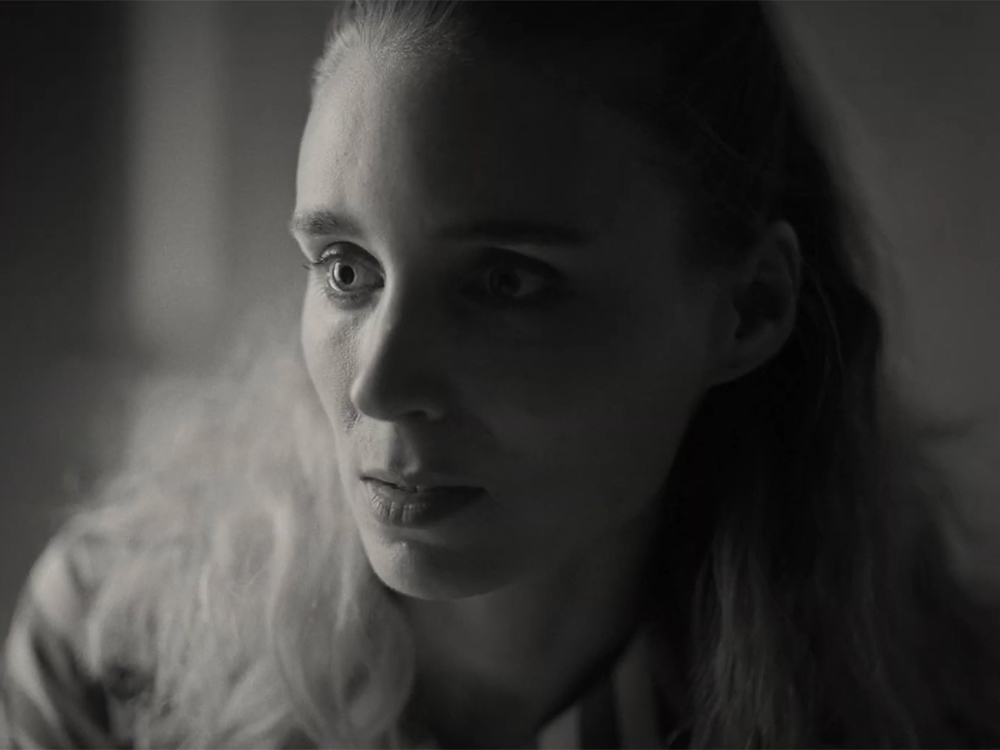
Q: The film is quite long at 139 minutes. Were there any challenges during the editing process, and how did you decide what scenes were essential to keep ?
Alonso Ruizpalacios: It’s always challenging. The selection process is tough. I think you stop when the producer says, “That’s it, we stop here.” I could have gone on editing for another six months, but fortunately, we had to hand it in for Berlin. It’s a trial-and-error process, an investigation. I approach it with a spirit of investigation.
Q: Music and sound design play a critical role in creating the atmosphere of a film. Can you tell us about your collaboration with Tomás Barreiro on the score, and how you wanted sound to complement the visuals ?
Alonso Ruizpalacios: Tomás is someone I’ve worked with a lot. He did the score for my first two movies, and now this one. We’re really good friends, so we have a lot of musical understanding. For this movie, I wanted music that felt religious, like it came from somewhere else. I found this music from Welsh choirs, which are all-male choirs. To me, that brought the element of sailors. Kitchens are a bit like pirate ships — mostly men inside, coming from everywhere. Having that nautical element was just an intuition I had. It also adds a spiritual dimension to the image.
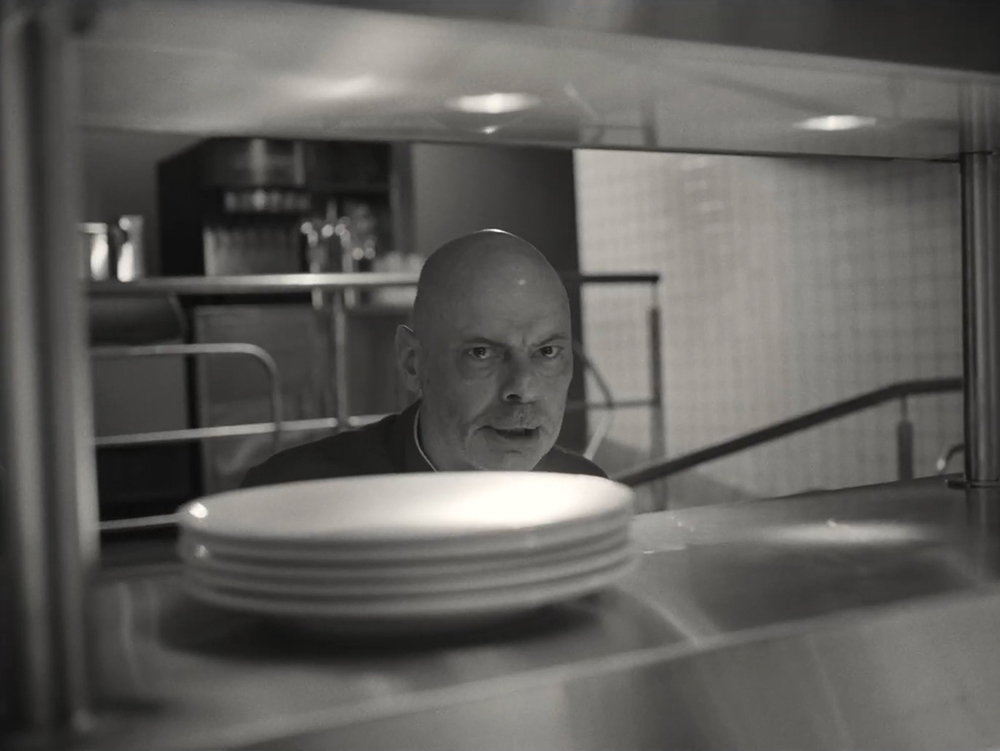
Q: As someone who has worked both on stage and in film, how did your background in stage directing inform your approach to adapting a stage play like The Kitchen for the screen ?
Alonso Ruizpalacios: It’s a challenge because I didn’t want it to feel like a play. I wanted it to be a visual experience. At the same time, I wanted the challenge of making a film that happened in the same place and in continuous time, so it was a theater setting, but I approached it cinematically. You have to translate dialogue into images, so it’s about taking a lot of dialogue out or making it just a soundscape rather than meaningful dialogue, as it is in a play. The point is what’s happening with the image — that was my approach.
Q: What does it mean for you to be selected for the American Film Festival in Deauville ?
Alonso Ruizpalacios: It’s great! I had never been before. It’s my first time here, and I was impressed. It’s such a big festival, and it was beautiful to see the screening yesterday.
Q: Finally, what do you hope audiences take away from La Cocina, especially regarding the themes of human struggle, dignity, and survival ?
Alonso Ruizpalacios: I hope it makes us think about the people we decide not to see — people in the service industry who bring us our coffee or food, and we don’t think about their lives. Hopefully, this film makes them visible and encourages more empathy toward them. Also, it’s a film that talks about the migration crisis happening both in Europe and the US, and we need a humanitarian approach to solve that crisis.
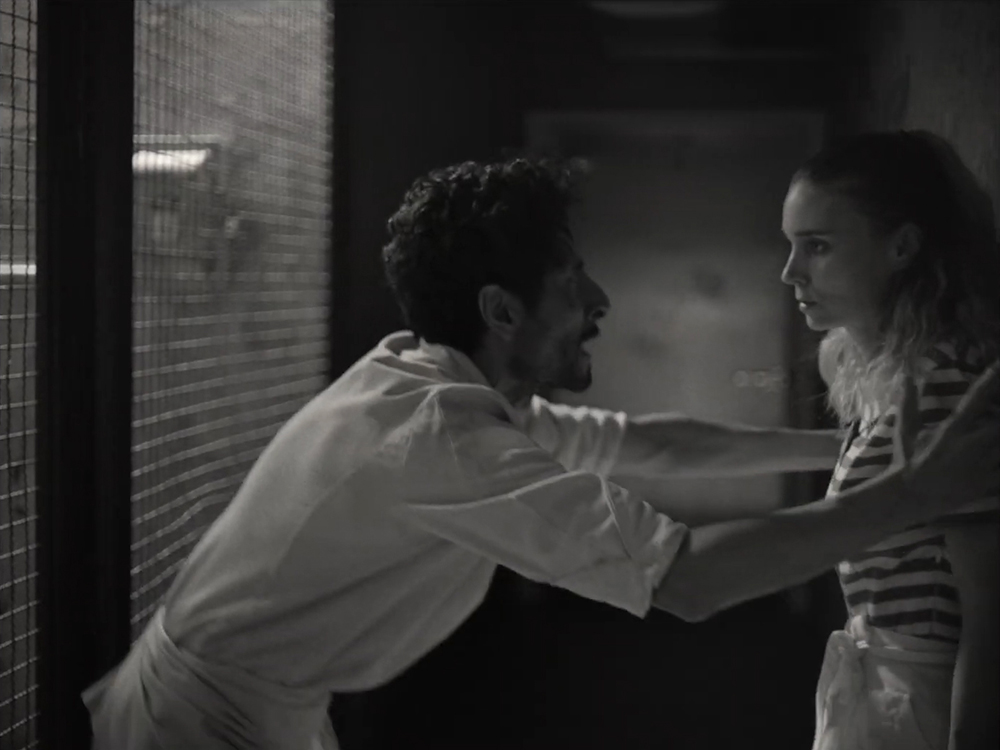
Alonso Ruizpalacios is a renowned Mexican filmmaker celebrated for his ability to craft deeply resonant narratives that blend social commentary with engaging storytelling. His directorial debut Güeros (2014) garnered international acclaim for its fresh take on Mexican youth and social issues, while his follow-up Museum (2018), starring Gael García Bernal, won the Silver Bear for Best Screenplay at the Berlin International Film Festival. Alonso Ruizpalacios is known for his sharp cinematic style, combining humor, drama, and political undertones, all while tackling themes such as identity, class, and the immigrant experience. With La Cocina, he continues to demonstrate his mastery in portraying complex social dynamics through the lens of immersive, character-driven stories.
Synopsis:
It's rush hour in the kitchen of the Grill, a bustling Manhattan restaurant. When money disappears from the cash register, service gets out of hand. Pedro, a dreamy, rebellious cook, tries to prove his love to Julia, while Estella, a new recruit just arrived from Mexico, must navigate the chaos.
La Cocina
Directed by Alonso Ruizpalacios
Produced by Ramiro Ruiz, Gerardo Gatica, Alonso Ruizpalacios, Lauren Mann & Ivan Orlic
Written by Alonso Ruizpalacios
Starring Raúl Briones, Rooney Mara, Anna Díaz, Motell Foste, Oded Fehr, James Waterson, Lee Sellars
Music: Tomás Barreiro
Director of photography: Juan Pablo Ramírez
Editing: Yibran Asuad
Distributed by Originals Factory
Release date: NC
Running time: 139 minutes
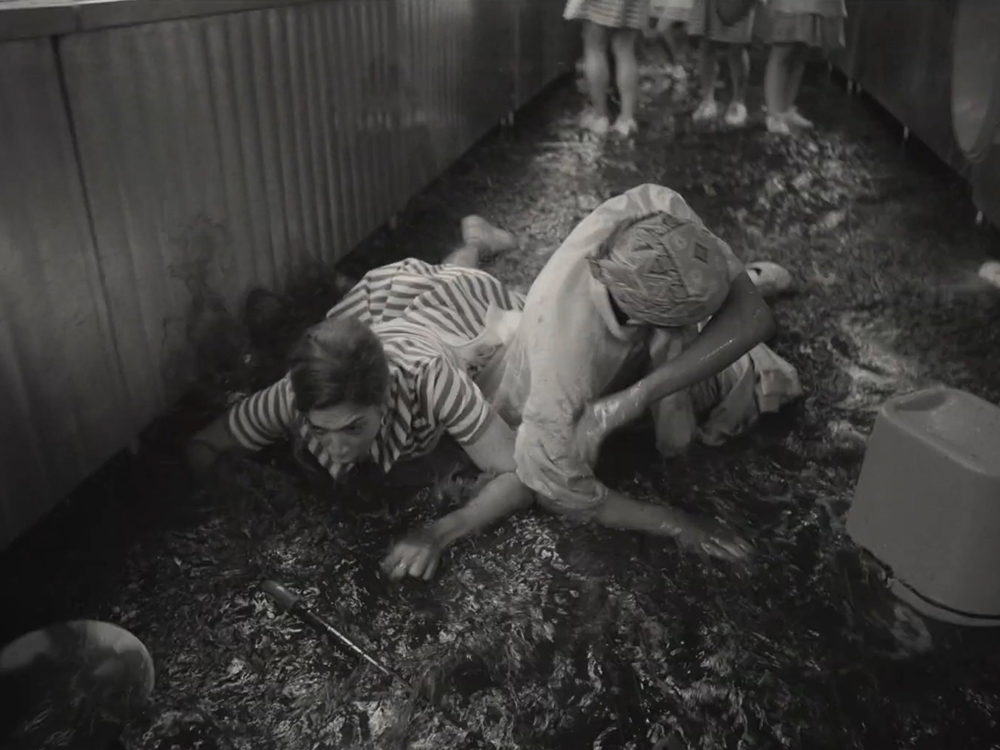
Photos and video : Boris Colletier / Mulderville

